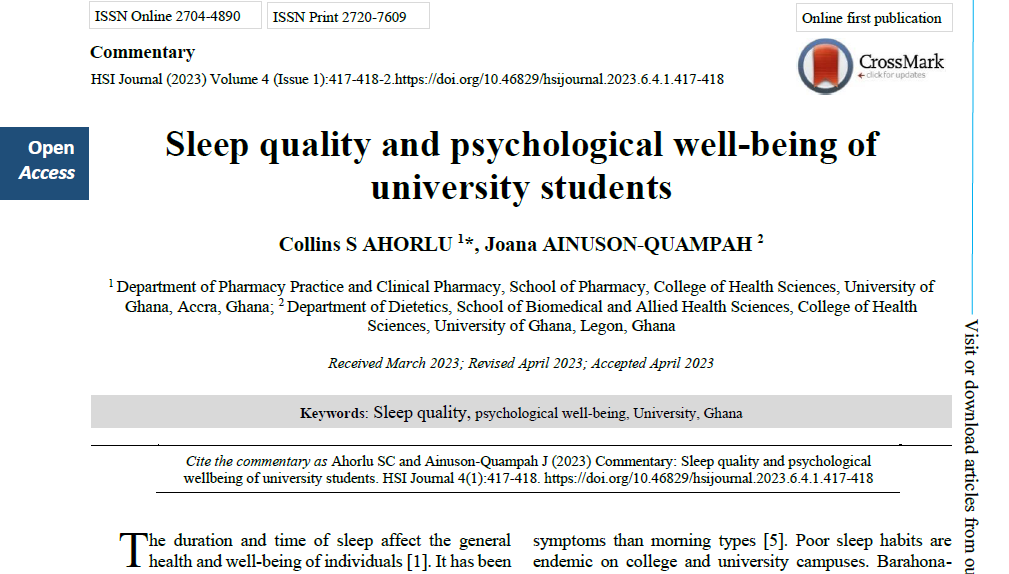Sleep quality and psychological well-being of university students
Sleep quality and psychological wellbeing of university students
Abstract
he duration and time of sleep affect the general health and well-being of individuals. It has been recommended that adults, aged 18 – 64 years, should sleep for 7 to 9 hours per night, however, many people struggle with sleep problems of various kinds and hardly meet these recommendations. Sleep is necessary for cognition, alertness, vigilance, and sustenance of attention as well as control of emotions. The effects of sleep deprivation on cognitive performance and other psychological variables have been widely studied. Sleepiness, the short-term effect of inadequate sleep, may lead to irritability, reduced alertness, poor motor skills, and attention problems. Among the long-term effects are obesity, type 2 diabetes, hypertension, and mental health disorders. Sleep deprivation in adults of all ages is defined as getting less than 7 hours of sleep per night.


